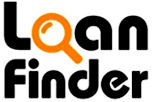Loan Program Guidelines
SOFR Rate Index
The Secured Overnight Financing Rate (SOFR) is intended to replace the US dollar London Interbank Rate (US LIBOR) in future financial contracts. SOFR was selected by the Alternative Reference Rates Committee (ARRC) chaired by the New York Federal Reserve in 2017. ICS prices Conventional loans using the SOFR rate + Lender Margin.
Prime Rate
The Prime Rate (Prime) is the interest rate that commercial banks charge their most creditworthy customers, generally large corporations. Lenders also use the prime rate as a benchmark to determine interest rates for real estate loans, either adding margin to the prime rate or deductions for certain loan types. The prime interest rate, or prime lending rate, is largely determined by the federal funds rate, which is the overnight rate that banks use to lend to one another. ICS prices non-conforming loans using the Prime Rate + Lender Margin.
Full Doc Underwriting
Full Doc underwriting requires tax returns for the last two years on individual borrowers and associated businesses involved in the purchase, refinance, or construction of real estate. Full Doc underwriting requires last 2 years property operating statements, rent roll, schedule of real estate owned, and a completed commercial 1003 application or personal financial statement.
Credit Score Based Underwriting
Credit Score Based underwriting means that the borrowers credit score will be evaluated when determining maximum LTV, loan amount, interest rate, and terms.
Asset-Based Underwriting
All property financials will be required to underwrite the loan, including last 2 years operating statements and rent roll. LTV, loan amount, interest rate, and terms are determined based upon the NOI and DSCR, not the borrowers personal financial income or credit standing.
DSCR - Debt Service Coverage Ratio
The DSCR determines the minimum NOI (net operating income) needed to support mortgage payments at a specified interest rate and amortization. For example, if the monthly mortgage payment is $10,000 and the loan program DSCR is 1.2x, then the minimum NOI must be greater or equal to $12,000/mo (1.2 x $10,000).
Conventional Loans (Conforming Loans)
Conventional loans are those that are sold by lenders and banks to agencies like Fannie Mae, Freddie Mac, and FHA, or held in the lender's portfolio. Conventional loans require stricter underwriting guidelines and offer the lowest rates available, typically based off the SOFR. Conventional loans require properties to be stabilized (85-90% occupied), strong DSCR, and managed by credit worthy property owners.
Non-Conforming Loans
Non-Conforming loans are loans that are not sold to Fannie Mae, Freddie Mac, and FHA, or do not meet standard Bank underwriting guidelines. Non-Conforming loans offer more flexible underwriting, but do have higher rates than Bank and Agency loans given a higher level of risk. Non-Conforming loans include Bridge loans, Fix & Flip, and some Construction loans.
Agency Loans
Fannie Mae, Freddie Mac, and FHA are government sponsored agencies that purchase conventional loans from lenders and banks, then convert the loans to mortgage-backed securities, or hold them within their own portfolios. Agency loans offer the best rates, typically .25% to .5% better than Bank loans. Agency loans are conventional loans, non-recourse in most cases, and are the preferred loan type for experienced real estate investors for loans $1MM+. Freddie and Fannie Mae will buy loans as small as $750,000 on a case-by-case basis.

